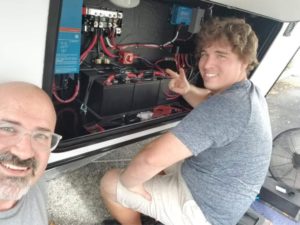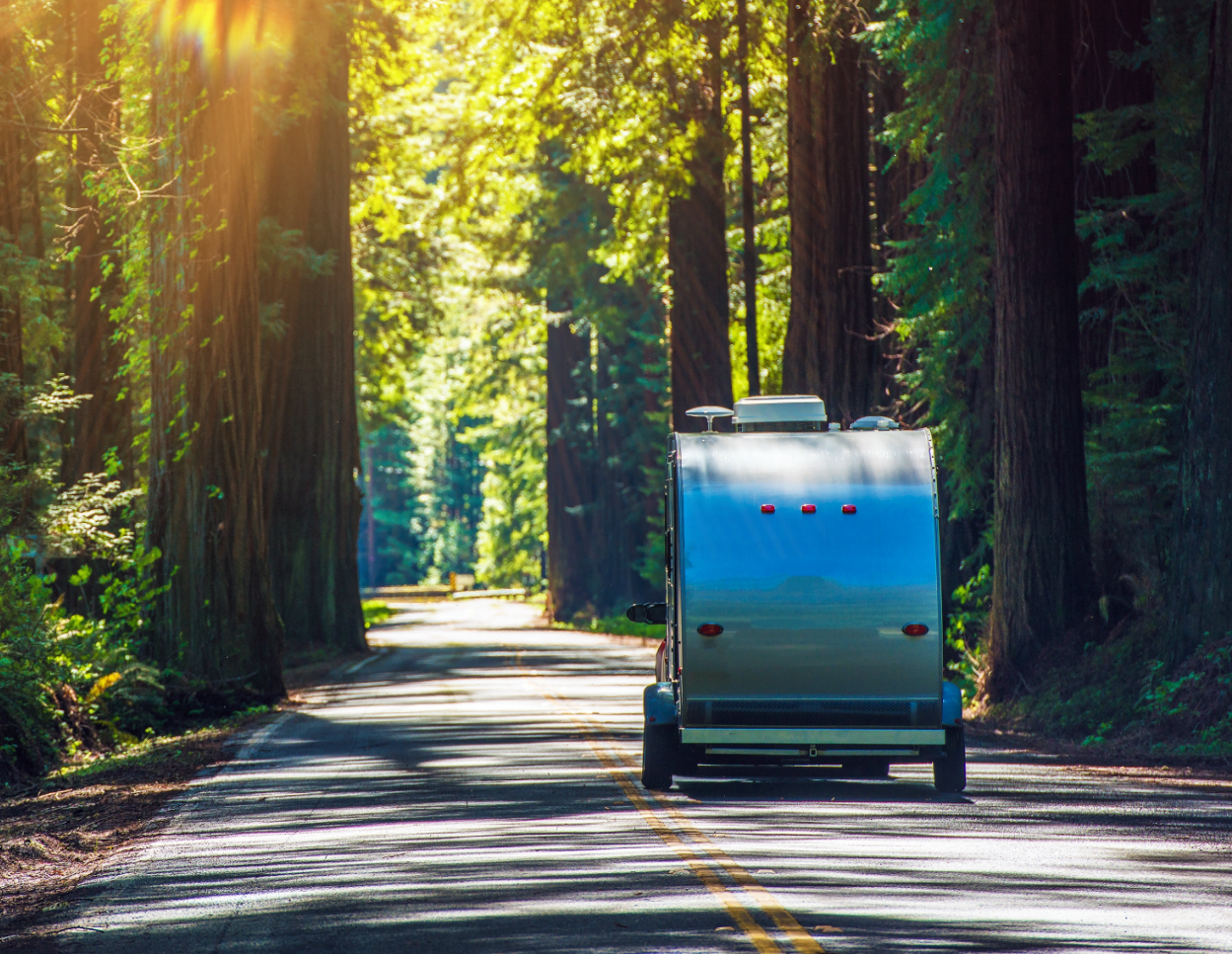 When Barry decided he wanted to be prepared to take his travel trailer off the grid and boondock when the spirit moved him, he first wanted to install a solar system to ensure he had the creature comforts only power can provide.
When Barry decided he wanted to be prepared to take his travel trailer off the grid and boondock when the spirit moved him, he first wanted to install a solar system to ensure he had the creature comforts only power can provide.
A DIYer at heart, knew bringing in a pro to help install the right solar array on his Grand Design Reflections 150 Series fifth-wheel would smooth the process. He hired Expert Mobile Solar LLC in Melbourne, Florida (check out his Facebook). The proprietor Jeff sent Barry a list of panels, batteries and other components to choose from.
Read on to discover what you can learn from the experience?
Working with that list, Barry bought a pair of 200-watt solar panels, three 100ah lithium batteries, a Victron Multiplus II that combines the 3000-watt inverter/converter/transfer switches, a 50 amp EMS Whole RV Surge Protector, and various other components, cables, shunts, dongles and Wifi, USB and HDMI adapters and the 50 feet of RJ45 cable needed to connect and complete his system.
Once it was done, we asked Jeff with Expert Mobile Solar a few questions, starting with what a solar array will set us back cost-wise?
Jeff: Its very hard to nail down price points because the technology can be scaled almost infinitely. If we are talking about systems capable of running one air conditioning unit for any amount of time then I would say a small system would run $7,000-$8,000, a medium system would be $12,00-$15,000, and a large system could run more than $20,000. Less demanding systems can be installed for less than $5,000.
RTM: How much – or how little – can people power with a solar array? What can they reasonably expect to power and for how long? This relates to the question on cost for small, medium and large systems
Jeff: Again the technology can be scaled to do almost anything. Most systems can easily support the charging of phones and laptops, watching TV, and making coffee. The larger ones will run things like A/C and microwaves for short periods of time. After that there is a direct correlation between the cost and the run time aka battery size. Most RVs have limited space for solar panels and aside from toting around a bunch of panels to set up on the ground, * I do have people who do that.* ; all you can do is increase the battery size and use a generator for short periods of time.
RTM: What will Barry be able to power with his system? You’re installing a soft-start, right? Will that make a difference?
Jeff: Barry has a 3,000-watt inverter which can output almost 30 amps on its own. Meaning he can run just about anything he wants for short periods of time. His A/C unit only requires about 15 Amps to run but can take up to 50 amps for a fraction of a second to start up. The Soft Start we installed really helps the inverter by reducing that start-up load to something more manageable like 25-30 amps.
RTM: Is this a DIY project, or do you need a professional?
Jeff: You can definitely DIY this! There is so much information and helpful videos freely available to everyone. It’s not for everyone though and there are some tools you’ll have to get. I would always recommend at least talking to someone who does this kind of upgrade before trying it yourself. A Lot of companies, mine included; offer consultations for relatively low sums of money ($200). Which will give you a massive head start on things like sizing your system and making sure you have all of the right parts. Mistakes in the planning phase can be costly and paying someone with the expertise to do that is always a good thing.
RTM: If I have a 10-year-old RV, is there any reason not to do a solar install?
Jeff: Did you just buy it or have you had it for 10 years? If it’s new to you, then hell yeah, upgrade and remodel away! Solar is a great addition to any RV, especially older ones. It gives you the opportunity to give the electrical system a once over and ensure years of reliable use. If you’ve had the RV for 10 years, then you really need to consider if you want to make such a large investment in a rig you might be tired of or have grown out of. Maybe it’s time to get a newer RV and instead of trading in the old one, sell it and use the funds for a solar system on your Brand New RV.
RTM: What haven’t I asked that people should ask when considering a solar install?
Jeff: How much are you going to use it? Solar is one of those things that you have to use for it to make sense. Most solar installers won’t tell you this but aside from a very small system that is meant to maintain your batteries, Solar and inverter/battery systems are a convenience. Most people who boondock a couple weekends a year can get away with portable generators that run on gas or propane. Maybe even a small battery backup device like a Bluetti. If you are going do some real off-grid camping on a regular basis there is no better option than Lithium batteries, Hybrid inverters, and Solar panels.
Check back later this fall for posts about how the solar array served up power while boondocking.
